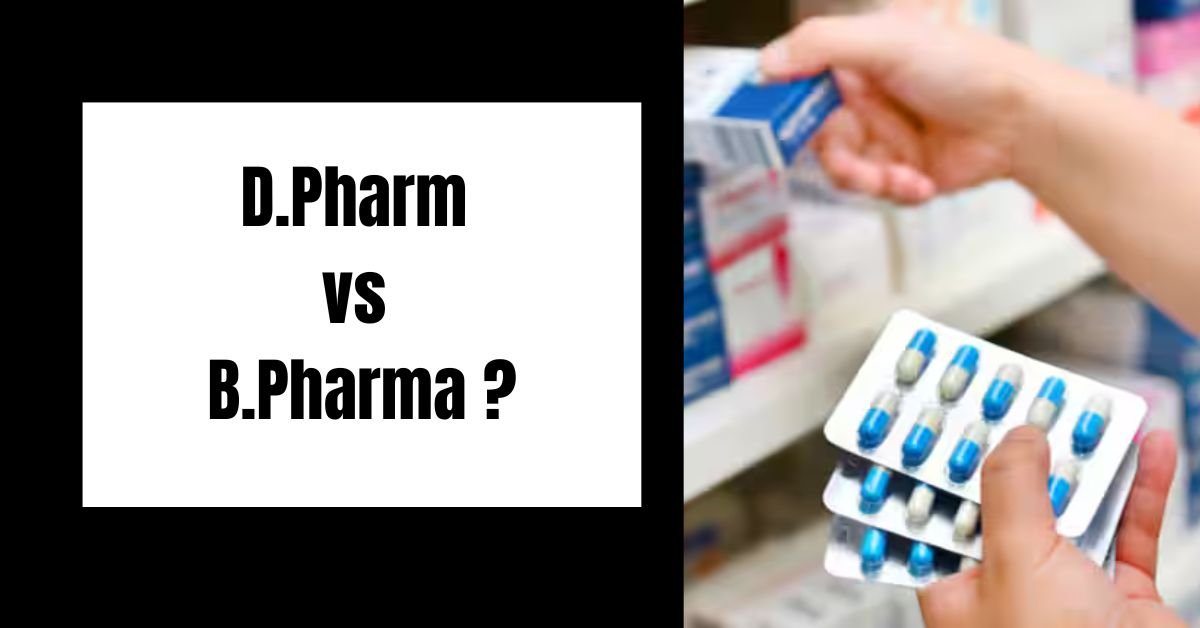Pharmacy can be referred to as the science related to medicines. This is the science that works in the discipline of preparing, distributing and safe use of medicines. Pharmacists or drug experts also know the composition, effect and use of medicines. For pursuing this field, it is understood that the pharmacy course is necessary to be done by the students. In India, aspiring candidates for pharmacy have two main undergraduate options. Pharm (Bachelor of Pharmacy) and D. Pharm (Diploma in Pharmacy). There is a lot of confusion created among many students regarding which course to opt for.
General Introduction to D.Pharm and B.Pharm
D.Pharm and B.Pharm are both undergraduate level courses; but they differ in duration and level of study. D.Pharm is a two-year diploma course, which can be pursued by students from science stream after completing their 12th standard. B.Pharm is a four-year comprehensive degree course that provides the whole gamut of education from drug manufacturing, drug testing, drug distribution to drug policy. The basic eligibility for admission to both courses is to have passed 12th with Physics, Chemistry and Biology (or Maths).
Difference in the study of both courses
D.Pharm provides a basic level education in which subjects like a basic information related to medicines, rules and regulations of pharmacy, pharmaceutical chemistry and physiology are provided to students. Such students can opt for early job exposure. B.Pharm course is very exhaustive, comprised in the syllabus are subjects like pharmaceutical biotechnology, industrial management, drug designing, pharmacology, analysis etc. Students can further go for research, government job or higher education such as M.Pharm, MBA or PhD.
Top Pharmacy Colleges in India
There are many renowned institutes in the country which offer both D.Pharm and B.Pharm courses. Some of the leading and the renowned names include National Institute of Pharmaceutical Education and Research (Hyderabad and Mohali), Jamia Hamdard (Delhi), BITS Pilani, and JSS College of Pharmacy (Ooty and Mysore) and Institute of Chemical Technology (Mumbai). Manipal College of Pharmaceutical Sciences and Punjab University (Chandigarh) also offer the above programs. Admission in these colleges includes several entrance examinations like BITSAT, EAMCET, WBJEE, MET etc.
Different fee structure
Colleges may decide but, generally, fees for D.Pharm and B.Pharm vary according to the institution. For example, D.Pharm at Jamia Hamdard costs approximately ₹80,000 annually, B.Pharm being up to ₹1.2 lakh. Likewise, Delhi Institute of Pharmaceutical Sciences has D.Pharm fee at around ₹ 12,000 and the B.Pharm fee is ₹ 22,000. In private institutions, for instance, Manipal College of Pharmaceutical Sciences, the B.Pharm fees can rise above ₹ 2.5 lakh.
Career Scope: After D.Pharm and B.Pharm
After completing D.Pharm, students can register as pharmacists and work in a hospital or a medical store. They can also opt to write government pharmacy tests or even start their own medical shop; usually, those who have completed D.Pharm have to do B.Pharm to progress in their careers.
After earning a B.Pharm degree, prospects widen even more. With this education, students can work as drug inspectors, research analysts, medical underwriters, food inspectors or consultants with pharmaceutical companies. Additionally, they can extend their services in public health segment, government organizations and defense sector. For those into further studies, an option could be M.Pharm, MBA or PhD.
Which course is good for you?
This decision completely depends on your career goals and interests. If you want to get a job quickly and start working as a basic pharmacy professional, then D.Pharm will be better. But if you want to get deeper into the pharma industry, do research or reach higher positions, then B.Pharm is the right choice for you. B.Pharm gives you more expertise, skills and better opportunities for further studies.
